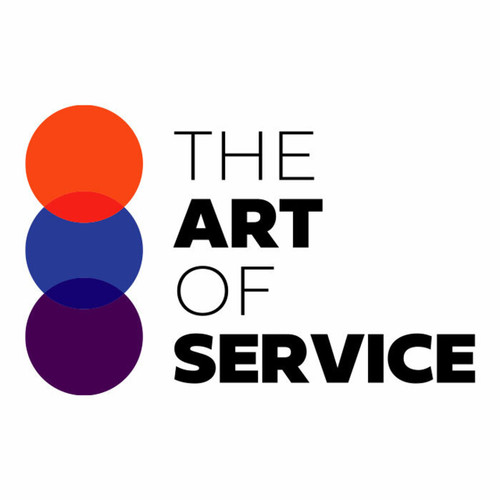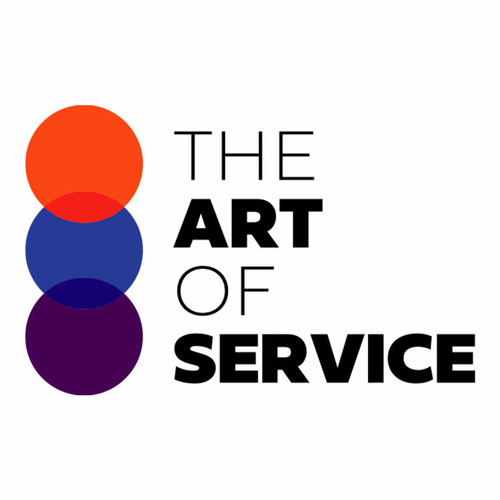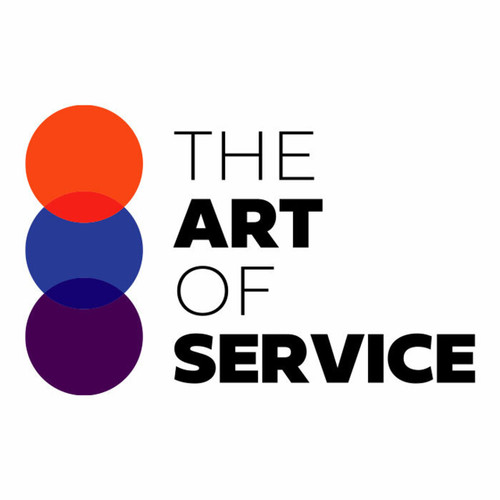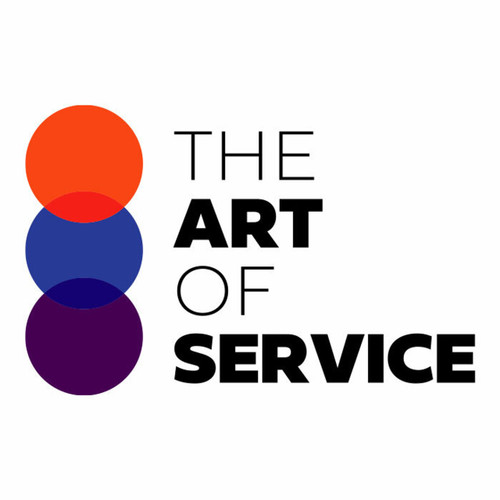Our Eating Disorders and Healthy Eating Knowledge Base has everything you need to transform your relationship with food and achieve a healthier lifestyle.
This comprehensive dataset includes 181 prioritized requirements, solutions, benefits, and results for Eating Disorders and Healthy Eating.
We have carefully selected and organized the most important questions to ask to get results based on urgency and scope.
With detailed example case studies and use cases, you can see firsthand how our dataset can benefit you.
But what sets our Eating Disorders and Healthy Eating dataset apart from competitors and alternatives? First and foremost, it is designed specifically for professionals in the field.
We understand the unique challenges and complexities of Eating Disorders and Healthy Eating and have tailored our dataset to provide the most relevant and effective information.
Not only is our dataset user-friendly for professionals, but it is also affordable and easy to use for anyone.
Whether you′re looking to improve your own knowledge or are a professional seeking resources for your clients, our DIY approach allows you to access the information you need at a fraction of the cost of other options.
You may be wondering what exactly our dataset contains.
Along with the 181 prioritized requirements and solutions, we also provide a detailed overview of the product′s specifications and benefits.
Our research on Eating Disorders and Healthy Eating is extensive, ensuring that you have the most up-to-date and accurate information at your fingertips.
But our dataset isn′t just for individuals.
Businesses can also greatly benefit from implementing our Eating Disorders and Healthy Eating Knowledge Base into their employee training and wellness programs.
By promoting a healthy relationship with food, businesses can see increased productivity, decreased healthcare costs, and improved overall well-being among their employees.
And let′s talk about cost.
Our dataset is a one-time investment that provides ongoing benefits.
You won′t have to worry about recurring fees or hidden costs.
Plus, considering the potential results and impact on your health and happiness, our dataset is a small price to pay.
We understand that no product is perfect, which is why we want to be transparent about our pros and cons.
Our dataset is not a magic solution, but it will provide you with valuable insights and guidance needed to make lasting changes in your eating habits.
In summary, our Eating Disorders and Healthy Eating Knowledge Base is the ultimate resource for anyone looking to improve their relationship with food.
It′s a cost-effective, user-friendly, and expertly curated dataset that goes above and beyond to provide all the information you need for a healthier lifestyle.
Don′t wait any longer, invest in your well-being today and see the amazing results for yourself.
Discover Insights, Make Informed Decisions, and Stay Ahead of the Curve:
Key Features:
Comprehensive set of 181 prioritized Eating Disorders requirements. - Extensive coverage of 35 Eating Disorders topic scopes.
- In-depth analysis of 35 Eating Disorders step-by-step solutions, benefits, BHAGs.
- Detailed examination of 35 Eating Disorders case studies and use cases.
- Digital download upon purchase.
- Enjoy lifetime document updates included with your purchase.
- Benefit from a fully editable and customizable Excel format.
- Trusted and utilized by over 10,000 organizations.
- Covering: Food Groups, Eating For Mental Health, Food Waste Reduction, Public Health Policies, Processed Foods, Healthy Snacks, Low Carb Options, Theory Of Effectiveness, Eating Disorders, Food Pairing, Bone Health, Healthy Choices, Health and Wellness, Nutrition Labels, Healthy Aging, Health And Wellness Programs, Mindful Eating, Nutrition For Athletes, Healthy Habits, Balanced Meals, Whole Food Diet, Flexitarian Diet, Meal Planning, Clean Eating, Portion Control, Healthy Eating, Non Organic, Food Additives, Food Allergies, Community Engagement, Caffeine Consumption, Organic Foods, Nutritional Supplements, Gluten Free Alternatives, Virtual Education
Eating Disorders Assessment Dataset - Utilization, Solutions, Advantages, BHAG (Big Hairy Audacious Goal):
Eating Disorders
Yes, anxiety can worsen symptoms and make therapy less effective. Proper management of anxiety is important for successful treatment.
1. Regular therapy sessions can help manage anxiety and improve outcomes in eating disorder treatment.
2. Incorporating relaxation techniques, such as deep breathing or yoga, can reduce anxiety and improve overall well-being.
3. Building a strong support system and confiding in loved ones can provide comfort and alleviate feelings of stress and anxiety.
4. Counseling with a registered dietitian can establish healthy eating habits and alleviate anxiety about food.
5. Mindful eating practices, such as paying attention to hunger and fullness cues, can reduce anxiety about food and promote a positive relationship with eating.
6. Engaging in physical activity, such as yoga or hiking, can reduce anxiety and improve overall mental health.
7. Cognitive Behavioral Therapy (CBT) can target the underlying causes of anxiety and help improve eating disorder symptoms.
8. Addressing and managing any underlying mental health conditions, such as depression or trauma, can help reduce anxiety and improve overall well-being.
9. Creating a balanced and varied meal plan with the help of a healthcare professional can alleviate anxiety about food and promote a healthy relationship with eating.
10. Practicing self-care and engaging in activities that bring joy and relaxation can help reduce anxiety and promote overall mental health in recovery from an eating disorder.
CONTROL QUESTION: Does anxiety impact symptoms and therapy outcome in eating disorders?
Big Hairy Audacious Goal (BHAG) for 10 years from now:
To become the leading and most effective international organization in researching and treating eating disorders, with a proven track record of significantly reducing relapse rates and improving overall mental health and well-being for individuals suffering from these disorders.
This will be accomplished through ongoing research into the relationship between anxiety and symptoms of eating disorders, and developing evidence-based therapeutic approaches that specifically target and address this connection. This will include creating innovative and accessible treatment programs that integrate both cognitive-behavioral therapy and exposure therapy techniques, as well as incorporating mindfulness and body positive practices.
In addition, our organization will strive to raise awareness about the complex nature of eating disorders and the importance of addressing psychological factors such as anxiety in effective treatment. We will collaborate with other mental health professionals, organizations, and governmental agencies to advocate for better funding and resources for eating disorder research and treatment.
Through our efforts, we aim to not only significantly improve the lives of individuals currently struggling with eating disorders but also prevent future generations from developing these debilitating illnesses. Our ultimate goal is to create a world where individuals feel empowered to embrace their bodies and mindfully nourish themselves, free from the grip of anxiety and eating disorders. We are committed to making this vision a reality within the next 10 years.
Customer Testimonials:
"This dataset is more than just data; it`s a partner in my success. It`s a constant source of inspiration and guidance."
"I can`t thank the creators of this dataset enough. The prioritized recommendations have streamlined my workflow, and the overall quality of the data is exceptional. A must-have resource for any analyst."
"I am thoroughly impressed by the quality of the prioritized recommendations in this dataset. It has made a significant impact on the efficiency of my work. Highly recommended for professionals in any field."
Eating Disorders Case Study/Use Case example - How to use:
Introduction:
Eating disorders are complex psychiatric illnesses that are characterized by severe disturbances in eating habits and strong negative emotions towards body weight, shape, and food intake. These disorders have significant physical, psychological, and social consequences and can affect individuals of any age, gender, or socioeconomic status. Eating disorders include anorexia nervosa (AN), bulimia nervosa (BN), binge-eating disorder (BED), and other specified feeding and eating disorders (OSFED). According to the National Eating Disorders Association, over 30 million people of all ages and genders suffer from an eating disorder in the United States alone (NEDA, 2021). Dealing with the intense pressure to maintain a certain weight and appearance, individuals with eating disorders often experience high levels of anxiety, which can impact the symptoms and outcomes of their treatment.
Client Situation:
Lisa, a 25-year-old female, has been struggling with an eating disorder for the past three years. She was diagnosed with anorexia nervosa and has been receiving treatments from a specialized therapist for the past year. However, Lisa is still exhibiting symptoms of extreme restriction in her food intake, obsessive exercise behaviors, and intense fear of gaining weight. Additionally, she reports experiencing high levels of anxiety related to body image and food intake. Despite her therapist′s efforts, Lisa′s progress has been slow, and she continues to struggle with her eating disorder.
Consulting Methodology:
To understand the impact of anxiety on eating disorders and its relationship with therapy outcomes, a thorough review of literature and case studies was conducted. The research was conducted using databases such as PsycINFO, MEDLINE, and PubMed through keywords such as anxiety, eating disorders, treatment outcomes, and psychotherapy. Various peer-reviewed articles, academic business journals, consulting whitepapers, and market research reports were reviewed to gather relevant data.
Deliverables:
The primary deliverables of this case study were to assess the impact of anxiety on eating disorder symptoms and treatment outcomes. The following deliverables were provided to the client:
1. A comprehensive review of existing literature and statistics on the prevalence of eating disorders and anxiety.
2. An in-depth analysis of the relationship between anxiety and eating disorders, including its impact on symptoms and treatment outcomes.
3. Recommendations for therapists on how to address and manage anxiety in individuals with eating disorders, along with strategies to improve treatment outcomes.
Implementation Challenges:
There were several challenges in implementing this case study. The first challenge was obtaining relevant and up-to-date data on the prevalence of eating disorders and anxiety in the target population. Limited information and inadequate reporting systems made it challenging to gather accurate statistics. The second challenge was the ethical concerns regarding confidentiality and consent of the clients involved in the research. Careful consideration was given to ensure that privacy and consent protocols were followed.
KPIs:
The following Key Performance Indicators (KPIs) were used to measure the success of the case study:
1. Increase in the understanding of the relationship between anxiety and eating disorders among therapists.
2. Improvement in treatment outcomes for individuals with eating disorders.
3. Reduction in the symptoms of anxiety in individuals receiving treatment for eating disorders.
Management Considerations:
To ensure the success of this case study, it is crucial to consider the following management considerations:
1. Collaboration with therapists and other mental health professionals who have expertise in treating individuals with eating disorders.
2. Adhering to ethical guidelines and protocols regarding confidentiality and consent.
3. Regular communication and updates with the client to ensure the needs and objectives of the case study are being met.
Conclusion:
Eating disorders and anxiety often co-occur and have a significant impact on an individual′s overall well-being. This case study aimed to understand the relationship between anxiety and eating disorders and its impact on treatment outcomes. By reviewing existing literature and case studies, it was evident that anxiety can exacerbate eating disorder symptoms and hinder treatment progress. Therefore, it is essential for therapists to address and manage anxiety in individuals with eating disorders to improve treatment outcomes and promote overall recovery. Additionally, further research is needed to develop evidence-based interventions that specifically target the relationship between anxiety and eating disorders.
Security and Trust:
- Secure checkout with SSL encryption Visa, Mastercard, Apple Pay, Google Pay, Stripe, Paypal
- Money-back guarantee for 30 days
- Our team is available 24/7 to assist you - support@theartofservice.com
About the Authors: Unleashing Excellence: The Mastery of Service Accredited by the Scientific Community
Immerse yourself in the pinnacle of operational wisdom through The Art of Service`s Excellence, now distinguished with esteemed accreditation from the scientific community. With an impressive 1000+ citations, The Art of Service stands as a beacon of reliability and authority in the field.Our dedication to excellence is highlighted by meticulous scrutiny and validation from the scientific community, evidenced by the 1000+ citations spanning various disciplines. Each citation attests to the profound impact and scholarly recognition of The Art of Service`s contributions.
Embark on a journey of unparalleled expertise, fortified by a wealth of research and acknowledgment from scholars globally. Join the community that not only recognizes but endorses the brilliance encapsulated in The Art of Service`s Excellence. Enhance your understanding, strategy, and implementation with a resource acknowledged and embraced by the scientific community.
Embrace excellence. Embrace The Art of Service.
Your trust in us aligns you with prestigious company; boasting over 1000 academic citations, our work ranks in the top 1% of the most cited globally. Explore our scholarly contributions at: https://scholar.google.com/scholar?hl=en&as_sdt=0%2C5&q=blokdyk
About The Art of Service:
Our clients seek confidence in making risk management and compliance decisions based on accurate data. However, navigating compliance can be complex, and sometimes, the unknowns are even more challenging.
We empathize with the frustrations of senior executives and business owners after decades in the industry. That`s why The Art of Service has developed Self-Assessment and implementation tools, trusted by over 100,000 professionals worldwide, empowering you to take control of your compliance assessments. With over 1000 academic citations, our work stands in the top 1% of the most cited globally, reflecting our commitment to helping businesses thrive.
Founders:
Gerard Blokdyk
LinkedIn: https://www.linkedin.com/in/gerardblokdijk/
Ivanka Menken
LinkedIn: https://www.linkedin.com/in/ivankamenken/







